Power infrastructure vandals put on notice
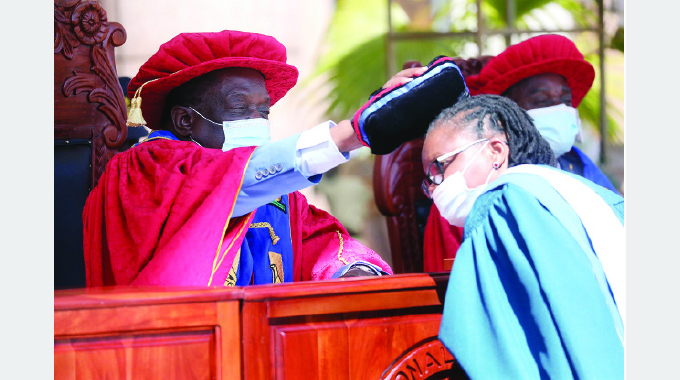
Zvamaida Murwira-Senior Reporter
Laws will be tightened and deterrent sentences imposed on those who vandalise and steal electricity infrastructure and systems even as Government broadens power generation and distribution, President Mnangagwa said yesterday when calling on all communities and agencies to tackle the problem.
Speaking while commissioning a dedicated power line connecting the Zimbabwe National Defence University to the Pomona sub-station soon after presiding over the graduation of 114 students at the university, the President said vandalism was on the rise and everyone must co-operate to stop this.
“It is disturbing to note that while concrete investments are being made to broaden our electricity generation and distribution matrix, the scourge of vandalism of national power infrastructure is on the rise.
“I call upon the nation and communities across all districts and provinces to raise their security consciousness and safeguard our national infrastructure.
“Equally, the Zimbabwe Republic Police and other stakeholders are challenged to scale up their operations to flush out criminal elements who vandalise national infrastructure.
“In the same vein, I challenge communities to also co-operate with the law enforcement agencies, by exposing known perpetrators of these retrogressive acts,” said President Mnangagwa.
“At this stage of our development epoch, communities must never harbour criminal elements. It is important that our social institutions, right from the family level, scale-up the nurturing of honest individuals who revere the virtues of individual and collective responsibility guided by the values of Ubuntu/Hunhu.
“On its part, my Government will continue tightening the legal instruments and other deterrent measures to curb the vandalism of national infrastructure.”
Last week, Government gazetted the Electricity Amendment Bill that seeks to remove an option of a fine on those convicted of vandalism and unlawfully transporting material stolen from the electricity grid and networks as Zesa recorded a US$9 million loss each year to vandalism.
The President noted that electricity was critical for economic growth and well-being of all communities and strategic institutions, including universities among others as the country marches towards Vision 2030.
“Reliable power supply across all sectors of the economy provides impetus to sustain both the forward and backward linkages which are important for industrial and other productive activities and services. In this regard, this power line is set to facilitate the university’s access to uninterrupted power supply to facilitate research, teaching and learning,” he said.
“This modest intervention by my Government is part of the raft of measures to respond to the growing energy demand. This became more pronounced during the peak of the Covid-19 pandemic which saw the introduction of virtual learning as part of the new normal.
“In light of the above, it is pleasing to note that the deployment of the whole of Government approach has seen the completion of this project and other similar projects and programmes being under taken by the Second Republic,” he said.
“I commend Radiation Incorporated Private Limited and other stakeholders for the professionalism and team work which saw the speedy completion of the project. This resonates with my administration’s hard-work ethic and culture of the timely completion of projects. Congratulations for the job well done.”
The Second Republic, remains determined to broaden the electricity generation and distribution mix in line with the United Nation Sustainable Development Goal 7 on affordable, clean and modern energy.
He challenged the university to explore and exploit renewable sustainable sources of energy.
“Riding on innovative solutions, I further exhort the institution to pursue the biogas digester project among other projects that should see the institution growing at an accelerated pace. The university must ultimately leverage on the additional power supply to reduce their reliance on the electricity that they are currently accessing from the national grid,” he said.
The world over, now more than ever before, said President Mnangagwa, universities are using cutting edge and innovative solutions with regards to creating a diverse and viable ecosystem.
“This is more pertinent as the reputation of institutions of higher and tertiary education is earned through innovation, research and development. Going forward, I challenge the university to increase its collaboration and synergies, through working with other institutions which have developed innovation hubs and industrial parks,” he said.
Higher and Tertiary Education, Innovation, Science and Technology Development Minister Professor Amon Murwira commended President Mnangagwa for his visionary leadership.
“No country can develop faster than the development of its education. For the country to move it is about what you know and what you can do. Therefore providing enabling critical infrastructure for institutions of higher learning including this strategic institution is very important,” said Prof Murwira
“It is a statement of giving prime importance to State universities, so we wish to thank you profusely for this gesture because dedicated power is very important. We also thank you for emphasising on the point of innovation that moving forward, we need to diversify our power sources so that we maintain this strategic intention of having power so that we continue learning.”
ZNDU Vice Chancellor Air Vice Marshal Dr Michael Moyo said 2019 brought with it several global challenges including Covid-19.
He reminisced one evening in August 2019, where the institution lost power which subsequently became a daily occurrence, something he said meant anguish for members of staff and students.
This was so because electricity was disconnected every morning until late into the evening leading the institution getting the unpopular nickname of “the dark city”.
“The university resorted to using generators and solar power. Unfortunately, during that time, the availability of diesel to power the generators became problematic and our solar plants became unserviceable for want of spare parts and batteries,” said Air Vice Marshal Moyo.
“Consequently, your university appealed to the Government of the Second Republic for funding to construct a dedicated power line, through the Ministry of Defence and War Veterans Affairs. Your Excellency, I am happy to report that the Government of the Republic of Zimbabwe responded at supersonic speed and availed funding for the construction of the requested power line, which power line you kindly agreed to commission today.”
The event was also attended by Defence and War Veterans Minister Oppah Muchinguri-Kashiri, service chiefs and senior Government officials.

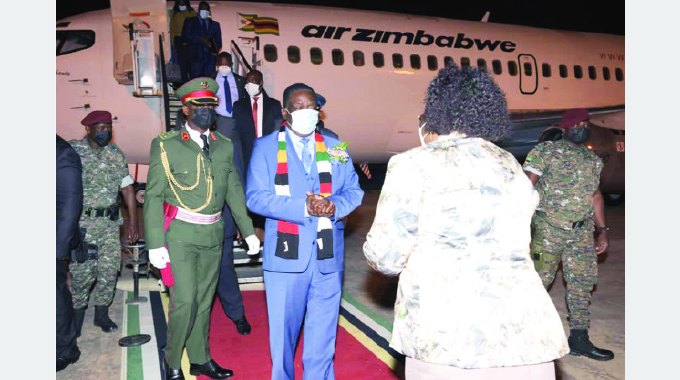

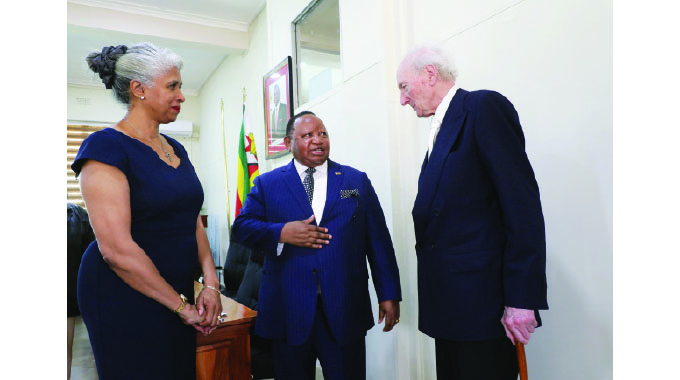
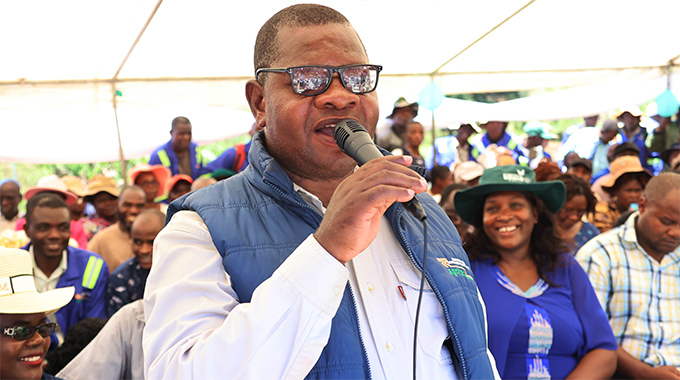
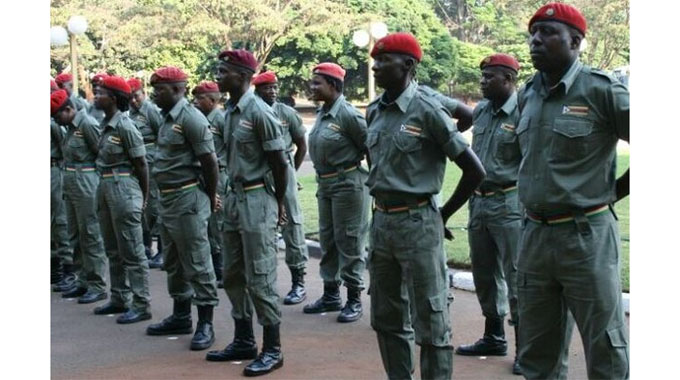

Comments